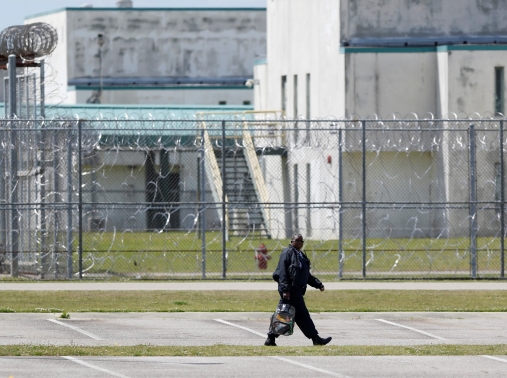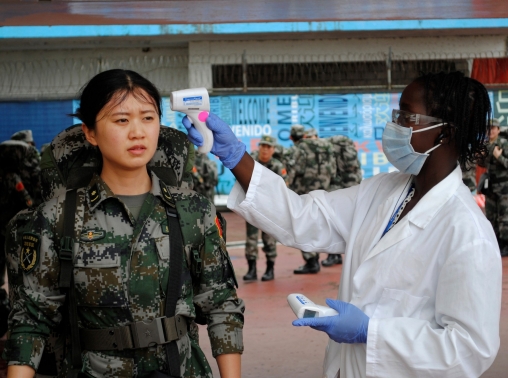|
|
RAND research and commentary on the issues that matter most
|
Aug 1, 2019
|
|
|
|
|
Image by pathdoc/Fotolia
|
|
|
|
The recent Capital One hack reportedly compromised the personal data of more than 100 million customers. When an attack like this occurs, how do people typically respond? A 2016 RAND report found that very few consumers penalize companies that are hacked. In fact, only 11 percent of people who were notified of a data breach said they stopped doing business with the hacked company. And 77 percent said they were highly satisfied with the company's post-breach response. Read more »
|

|
|
A guard leaves the Lee Correctional Institution in Bishopville, South Carolina, April 16, 2018. Photo by Randall Hill/Reuters
|
|
Some threats to the security of correctional institutions—such as violence, escape attempts, and contraband—are as old as the institutions themselves. But as society and technology evolve, new threats are emerging, including hacking, synthetic drugs, and drones. These threats aren't confined to the walls of correctional facilities; many of them present risks to public safety. To better understand how to address these challenges, RAND researchers brought together a panel of experts.
Read more »
|
|

|
|
A Chinese military health worker, sent to help in the fight against Ebola, has her temperature taken upon arrival in Monrovia, Liberia, November 15, 2014. Photo by James Giahyue/Reuters
|
|
Both the United States and China face global health threats, including pandemics, bioterrorism, and problems brought on by climate change. Can the two powers work together to address such issues? They have in the past. But according to congressional testimony by RAND's Jennifer Bouey yesterday, growing tensions between Washington and Beijing may jeopardize cooperation. There are, however, some joint efforts that could be feasible. For example, collaboration between the U.S. FDA and Chinese FDA could help improve regulation in China's booming pharmaceutical industry.
Read more »
|
|

|
|
Photo by monkeybusinessimages/Getty Images
|
|
Most U.S. employers say that students aren't acquiring the right skills. Specifically, they cite a lack of important competencies, such as critical thinking and active listening. Making work-based learning a bigger part of higher education could help, say RAND experts. Evidence suggests that job shadowing, skills-specific training, apprenticeships, and other programs can help students become more work-savvy. And in turn, employers can gain more-qualified workers.
Read more »
|
|

|
|
A U.S. Customs and Border Protection officer opens a pill bottle for testing at O'Hare International Airport, November 29, 2017. Photo by Joshua Lott/Reuters
|
|
In 2018, nearly two-thirds of U.S. opioid overdose deaths involved synthetic opioids, primarily fentanyl. That's because these substances are much more potent than heroin or prescription painkillers. As fentanyl permeates the market, the risk of fatal overdoses increases. These synthetics are "stretching our ability to respond" to the opioid crisis, according to recent congressional testimony by RAND's Bryce Pardo. What are the available policy options?
Read more »
|
|

|
|
Steam rises from the chimneys of a thermal power plant behind the Ivan the Great Bell Tower in Moscow, Russia, January 9, 2018. Photo by Maxim Shemetov/Reuters
|
|
For several years, the United States and Russia have been targeting each other's infrastructure with cyberattacks, particularly power grids. But recent reports suggest that this confrontation is ratcheting up. How can Washington address this cyber showdown without risking the safety of civilians? According to RAND's Joe Cheravitch, it's important to treat this as a long-term struggle—one that requires innovative and thoughtful solutions, not reflexive ones.
Read more »
|
|
|
You already get the latest insights from RAND in your inbox. Why not your earbuds?
Policy Currents is now available as a weekly podcast. Five minutes, every Friday.
Subscribe now »
|
|
|
|
|